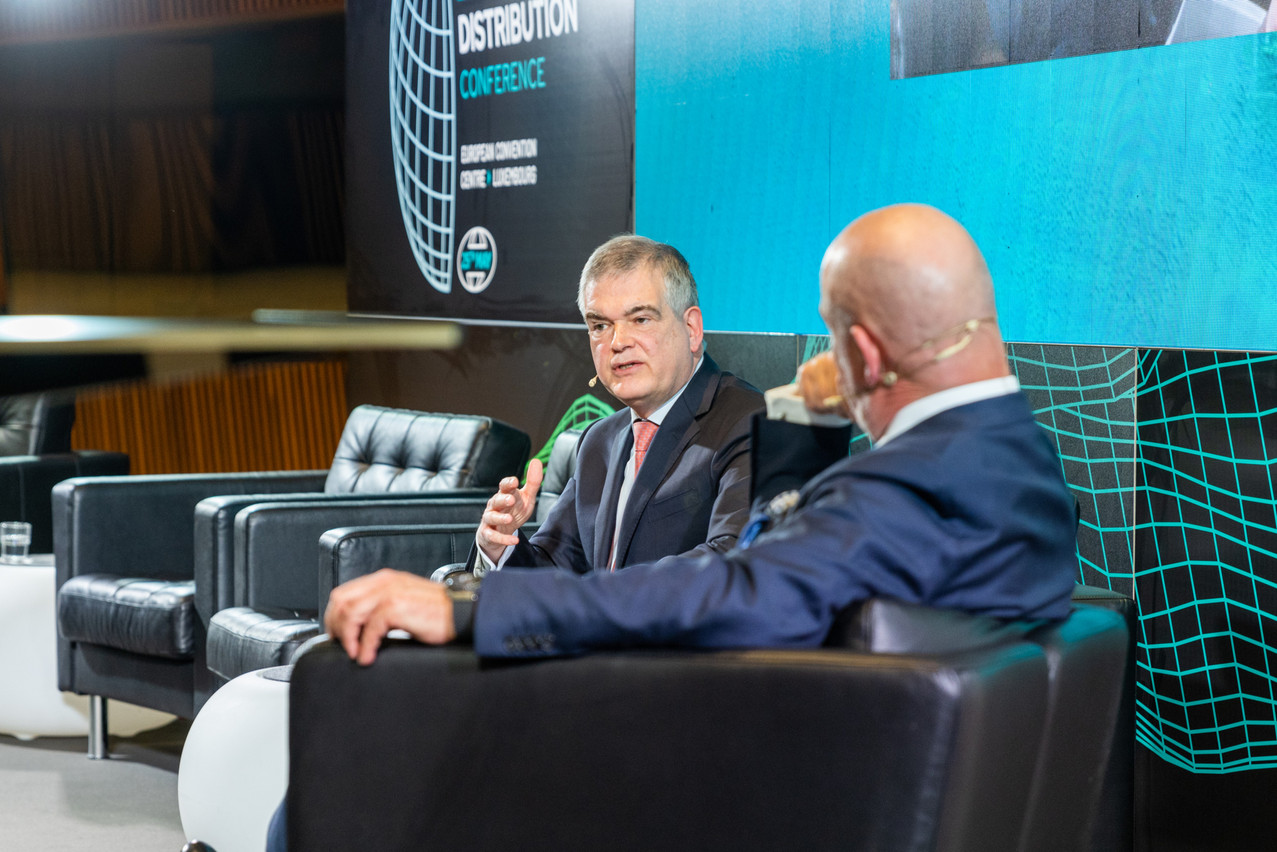The use of AI technology is unlikely to “replace humans” in the financial industry, the head of Luxembourg’s financial regulator said during a legal conference, although a venture capitalist speaker said cuts in administrative positions were entirely feasible.
AI has got the potential to improve existing processes and replace some of the lower value-added administrative drudge work, stated , director general of the Luxembourg Financial Sector Supervisory Commission (CSSF). But Marx said that “the risk of humans being completely replaced [by the technology] is remote.”
Marx was speaking at the 2024 Elvinger Hoss Annual Regulatory Forum, held at Mudam on 5 June 2024. The conference was mainly geared to legal and compliance professionals in the banking sector.
Limited disclosure
Just as the internet and apps have not replaced banks, AI “will not replace humans, but will enhance” people’s work. “So, it’s a positive thing,” Marx said in his keynote address, allowing staff to focus “on more value-added tasks.”
“Actual use” by financial firms in the EU at the moment “is still limited”. Marx cited a recent European Securities and Markets Authority study that found only 65 out 22,000 investment funds examined disclosed use of AI or machine learning. Among fund managers using AI, there was no evidence of outperformance, better risk adjusted returns or lower expense ratios.
AI risks
While Marx was positive on AI overall--saying the technology “should be used”--he did flag potential issues. Financial firms need to set clear guidelines on which processes will be automated and how to mitigate risks. Marx said risks include data quality risks, such as bias, disinformation and , as well as the risk of AI-washing, which allows companies to reduce costs without disclosing the use of the technology and without a corresponding reduction in fees.
Marx said regulators and the industry lacked accurate data: “we don’t have it right now.” The CSSF and Luxembourg Central Bank (BCL) will shortly field a survey of banks and investment firms on their use of AI and how they monitor AI risks. Marx said they aimed to publish the results “before the end of the year.”
‘Coming for your lunch’
During a separate panel discussion held earlier at the same conference, , co-founder and CEO of Mangrove Capital Partners and chair of Wix, took a more assertive stance. The question for bank executives was “will you embrace” change “or not”. The VC investor and technology executive warned that “if you don’t think AI is coming for your lunch, think again.”
But rather than be overly ambitious, banks should start by focussing on what he called “the basics”. Take, for example, compliance. Tluszcz called it “boring” and said it was difficult to motivate people to work in the compliance function. Taking an AI system and plugging it into a bank’s workflow could reduce personnel costs by 30%-50%, he estimated. The potential to cut administrative headcount by a quarter or by a half, “that’s pretty good,” Tluszcz stated during the panel discussion.
However, the “single biggest opportunity” for Luxembourg banks, Tluszcz said, was shortening the time it takes to open an account. “Why does it take two months to open an account in Luxembourg?” he asked.
Read also
Tluszcz recalled that he recently phoned his bank’s customer service centre and spoke with a “real person”. But in coming years, “these things will disappear” and be replaced by bots. At the same time, banks should use AI to introduce “truly personalised service,” such as an “assistant” that can converse with clients. Banks have trusted brands, so a customised chatbot, programmed with the institution’s own verified data and in-house jargon, could create a “very personalised relationship” with customers.
The heads of banks in Luxembourg “not willing to invest in” and embrace AI, Tluszcz said, “will no longer be CEO of that bank in five years.”
Luxembourg AML/KYC project
Speaking on the same panel, , CEO of Edmond de Rothschild Europe and chair of the Luxembourg Bankers’ Association (ABBL), cited a project run by the University of Luxembourg’s SNT centre, the ABBL and local banks that is developing an AI system to conduct anti-money laundering due diligence for financial institutions. The system aims to “reduce 90% of human intervention in detecting [know-your-customer] issues.” But, Stein stressed, a human staff member “still needs to check” what he called “the last mile” of the process.
Stein said that more than 60% of Luxembourg banks have an AI project of some sort and more than 70% provide access to ChatGPT or similar tools to their staff.
